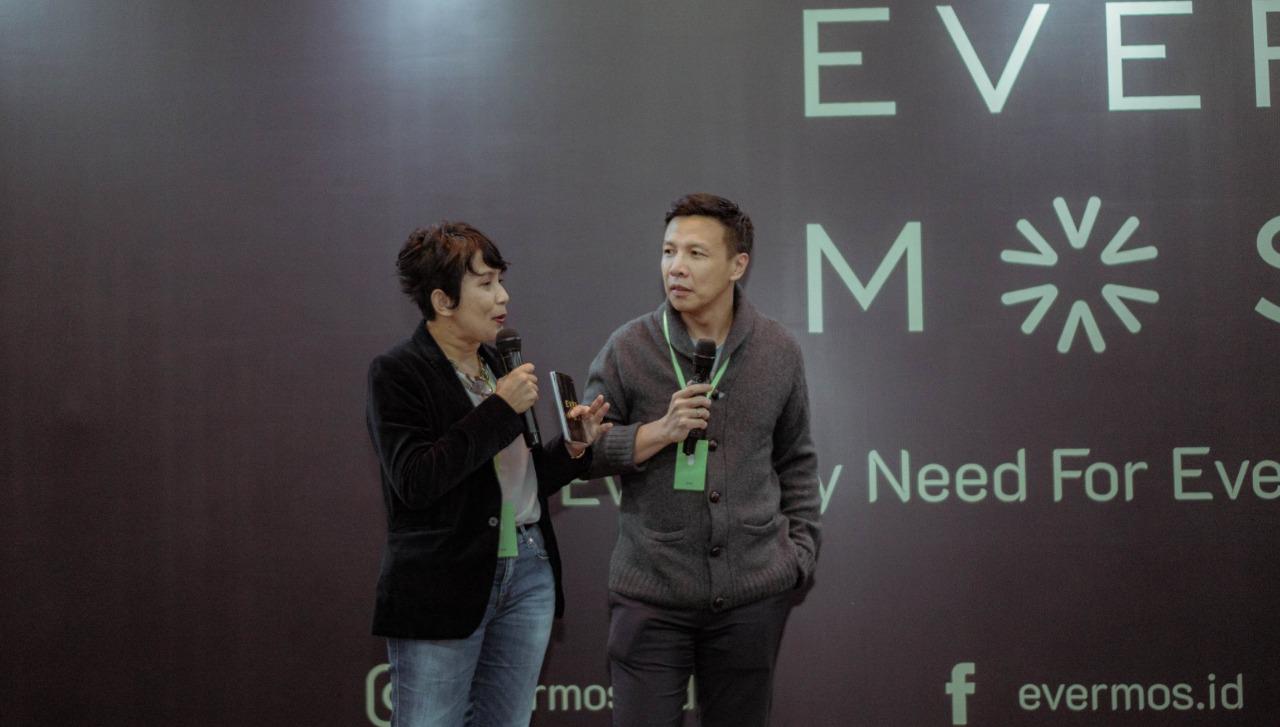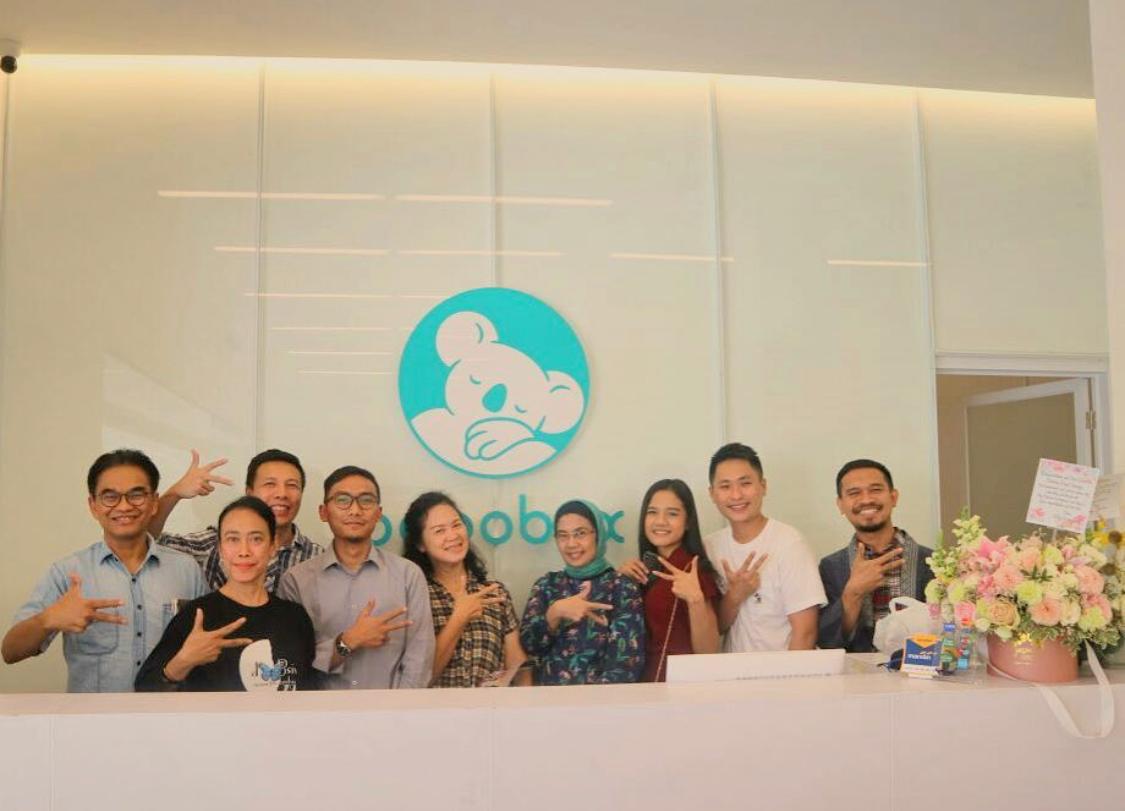Arip Tirta: Technology Can Change People and Business in a Fast and Significant Way
Started from Silicon Valley, Arip Tirta has specialties in venture capital, venture lending, private equity, start-ups, entrepreneurs, financial structuring and business models
This article is a part of DailySocial’s Mastermind Series, featuring innovators and leaders in Indonesia’s tech industry sharing their stories and point of view.
Silicon Valley is the paradise of the startup industry and Arip Tirta spent nearly 7 years analyzing the market for the US-based leading capital market company that lends to technology, life sciences, and sustainable technology companies. He has specialties in venture capital, venture lending, private equity, start-ups, entrepreneurs, financial structuring, and business models.
In 2011 he decided to come home and built his own venture. His startup debut is in the property sector, with UrbanIndo, an online service that helps its users to market, sell, and buy property in Indonesia. After being acquired by another proptech startup 99.co, Arip moved to the next venture in the accommodation sector, Bobobox. Aside from building a venture, he also actively invest in startups, he also directly involved in some of the startups.
Arip's current focus now lies in Evermos, the first social commerce to empower Small Medium Enterprises and individuals, by connecting brand owners to resellers to end consumers through the platform. He's currently very passionate about cultivating the SME ecosystem, also become a part of BRI Ventures' commissioner to help to build the VC ecosystem in Indonesia.
Aside from his experience in Silicon Valley, Arip Tirta has specialties in venture capital, venture lending, private equity, start-ups, entrepreneurs, financial structuring, and business models. DailySocial team has an opportunity to discuss his venture and future expectations of the Indonesian tech industry.
When was the first time you realize that you're in the tech industry?
I have an educational background in scientific computing. It's a combination of applied math, statistics, and computer science. During my campus life, I always dreaming about making it into Wall Street and become a trader. Then, life got in the way. In my last year of college, I got an interview with one of the venture capital & private equity-based in Palo Alto. My viewpoint of the tech industry was limited at that time, however, I managed to pass the interview with my technical skill.
My first attempt in the tech industry was being an analyst for the US-based leading capital market company that lends to technology, life sciences, and sustainable technology companies. During my first few years, I was being a generalist until I decided to focus on the tech industry in my third year. I think that was when it all started to become more interesting. I spent 7 years analyzing the market in Silicon Valley and leaving with the finest seeds to plant in the home country.
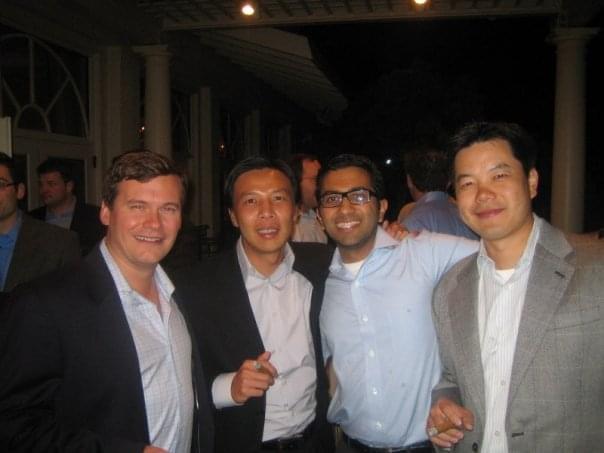
You've had the time of your life in Silicon Valley, what makes you leave the "it" city and decided to come home?
If there is one thing I've learned in Silicon Valley, technology can change people and business in a fast and significant way. In terms of marketing, back in the day when the internet is very exclusive, people have to pay loads of money for ads. Nowadays, when there are options, everything is made possible even with just a little money. Technology is changing the way marketing works and still counting.
In 2010, Indonesia was having its first internet boom, one of the historical moments was Koprol's acquisition by Yahoo! I was watching Indonesian tech companies' growth from afar and quite impressed. With some serious considerations, I finally pull the trigger and leave Silicon Valley to contribute more in my capacity with my experience to the Indonesian market.
How was your first experience building a startup?
When we want to start anything, there is no such thing as perfect timing. Few months before leaving for my hometown, I've already worked on some ideas and business plans, one of which is the real estate industry.
Indonesia circa 2010 is like a wild wild west where basic infrastructure is very limited. Therefore, we [tech enthusiasts] collectively trying to develop the foundation. I did it in the property sector, there are others in different sectors. At the same time, we need to educate the market. Market in this sense not only stands for end-users but also the government, including families a.k.a societies.
When I set my foot back in this archipelago, I'm aware that I shall not compare how things work in here with the way things are in Silicon Valley. Therefore, I did it all without high expectation, just try to make it work. We founded UrbanIndo, an online service that helps users market, sell, and buy property in Indonesia in 2011.
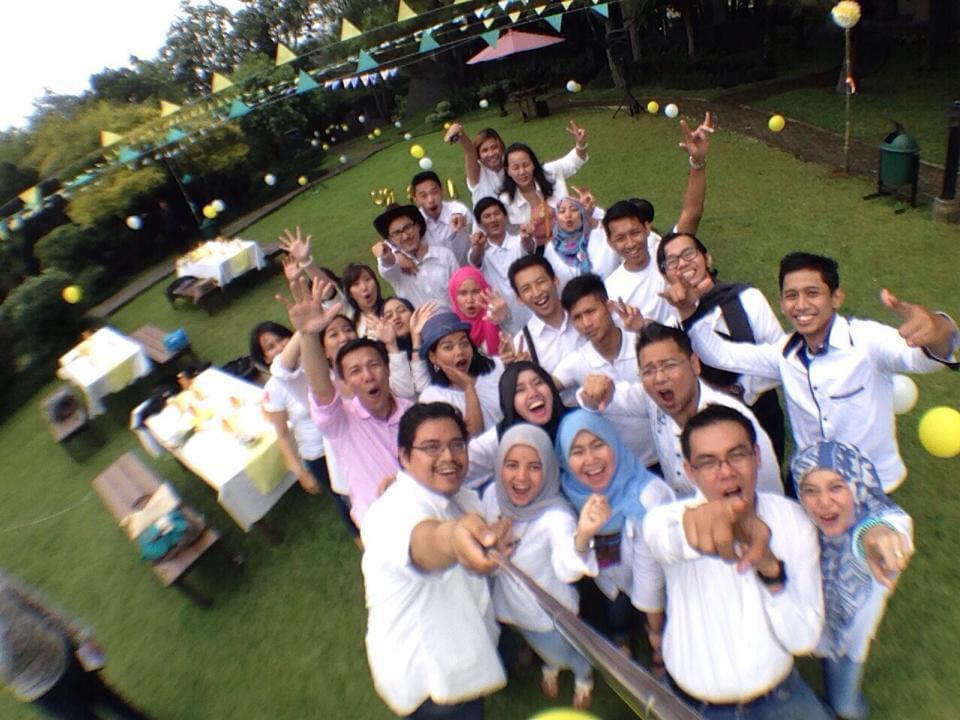
First, I see the Indonesian property lacks market data and decided to disrupt this industry for more people can have more insights on this sector. UrbanIndo was build to become the best property site in Indonesia by redefining the way Indonesians looking at properties. Therefore, all Indonesian people can make the best decision regarding investment in property. We're focused on market insights, changing prices, projections, available undervalued property, and so on.
We did everything in our capacity to build this platform, it was backed by Gree Ventures, IMJ Fenox, East Ventures, and prominent angels. It was an exciting nearly-7-years time of making business work until in late 2017, we finally decided to accept an unsolicited offer from Singapore's property search startup 99.co.
It is said that you are also an active angel investor. With Bobobox, you become the Co-Founder and directly contribute to managing day-to-day operations as Managing Director for almost a year. How did you manage?
While I was working with UrbanIndo, I also did some angel investing. There are several sectors that are worth disrupting. With bobobox, I was involved since the beginning. I see the travel industry is at its peak. Many people are traveling a lot, despite for content or just for peace of mind. We then found out that accommodation becomes a big cost-related issue in this segment. One of the ways to solve this problem is to maximize space resulting in cost-effective price.
Bobobox was founded in 2018, a new, young, sleek, nimble, and smart accommodation solution for everyone. Bobobox becomes the alternative accommodation for millennial adventurers and smart travelers who crave something new and refreshing. The platform was built to revolutionize sleeping habits and help people sleep better and experience more through technology.
Angel investing in Indonesia is getting popular as many startup founders have exited with high net worth individuals growing interested to invest directly in startups. In Silicon Valley, it's different indeed as they have passed some full cycle from startup founding to exit. Meanwhile in Indonesia, it'll make its full cycle this year when the nation's unicorn/decacorn succeeded to exit in the overseas stock exchange.
As social commerce, Evermos focuses to empower SMEs and individuals on its platform, especially Muslim brands. Why do you take this approach?
Throwback to Silicon Valley, I used to think I would start my venture with e-commerce. In every region, the sector that is usually taking off first is e-commerce, the first one to make it into a unicorn. However, when I examine the current situation in Indonesia, there are already some leading players and if I added one more, there will not be a significant difference in terms of a value proposition.
Fast forward to 2018, I see the there are lots of pain points in our retail industry. It requires many middlemen to complete the cycle from brand owners to end-users. And I think to myself, how to disrupt this retail market? Years have passed since e-commerce expanding all around Indonesia, but the percentage of online purchasing is considered not big enough. There are several reasons, including people as a social being and culture.
Back then, social commerce is yet to be a thing. In fact, we also tried to bring the positive impact of e-commerce to a bigger market. Founded in November 2018, Evermos is the first social commerce to empower Small Medium Enterprises and individuals, by connecting brand owners to resellers to end consumers via our platform.
We want to create inclusive economy and prosperity by giving access, opportunity and training for individuals and SMEs to become more financially independent.
Indonesia is a country with the largest Muslim population in the world, therefore, we decided our platform be sharia compliance. However, it is not exclusive and it's open for all kinds of merchants regardless of the sharia compliance. The approach is to make the platform more inclusive.
SME becomes one of my focus since it contributes to 60% of our GDP and absorbs around 97% of domestic employment. Try counting the unskilled workers, too. Evermos is considered to take the hard road as it is easier to deal with global brands with a growth mindset and sophisticated technology. However, we did questioning ourselves about the impact we want to create, is it to make a short term gain or long term gain. Thus, we decided to focus on local brands that can create an impact on the nation's economy.
We believe whether the group of people or SMEs work together with the right platform and incentives, we can achieve something substantial. That is why we put our trust in social commerce because this is people's economy, where we can be the bridge for SMEs in the early stage. With Evermos, they can focus on production to create a competitive price with global players. Our sales channels are distributed throughout Indonesia, therefore, the local brands automatically become national companies. This has become our value proposition.
My biggest fear in terms of tech startups or SME is that our country became a sole consumer. We have to be able to build the value, instead being a sole trader. Indonesian economy should have the positive impact, it's an essential part of this nation.
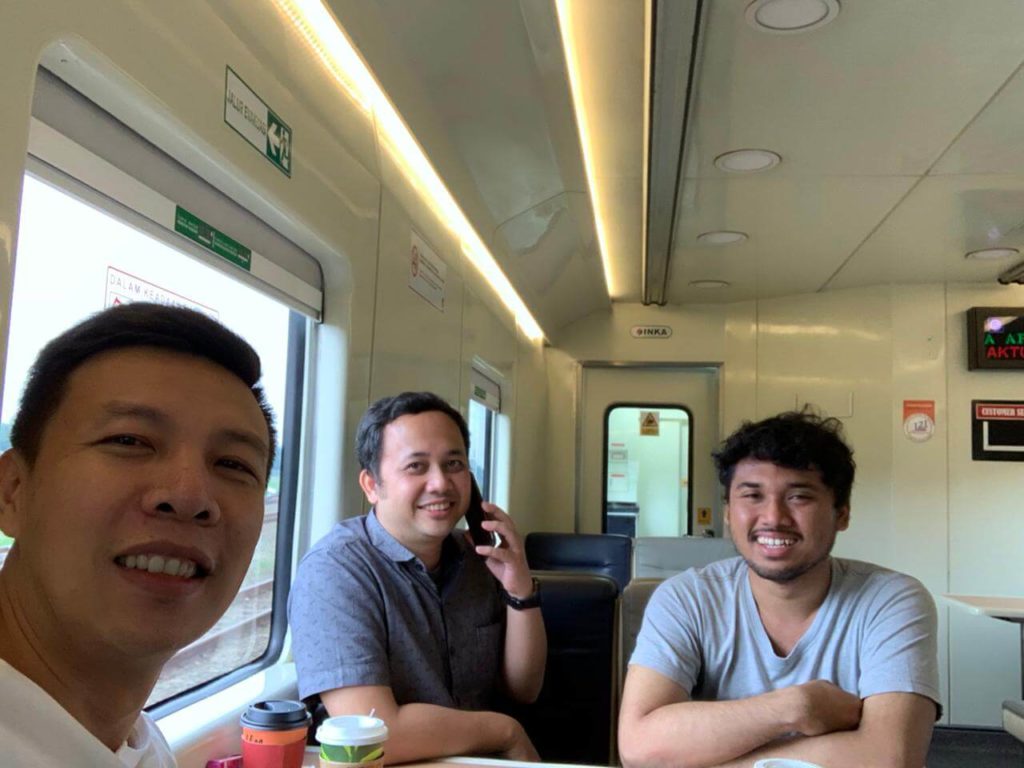
You've been venturing in the property sector, accommodation, and now the social commerce, Evermos. What is the biggest challenge or the lesson learned from all your experiences?
Every industry holds different issues. In fact, there are some similar concerns we should be aware of and collectively improve. In Indonesia, some startups are usually having difficulty with monetization. Our previous blunder was thinking of market share first and being the leading one, then we can turn on monetization. This strategy has proven in many countries. After all, Indonesia is indeed a unique nation that some people are not willing to pay a certain amount for an internet solution. It might work in other country but it's a leap of faith in Indonesia.
Second, it's the human resources. To date, Indonesia still experiences a crisis due to the lack of a middle layer. In terms of supply, talent is still quite rare, especially in a tech background. I think both issues are happening in almost every sector.
You've had experience as a venture capitalist and venture builder, what do you think of Indonesia's investment climate, and how do you see the Indonesian tech industry's growth for the past few years?
As I said previously, Indonesia is yet to create one full cycle in terms of venture investment. From investing to harvesting. This year will be the year of validation for the unicorn/decacorn which already have plans for IPO. Hopefully, the exit can also bridge other startups for M&A activities. Indonesia is already a very attractive market, it's how we trigger more success stories to impact the whole ecosystem.
In this time of the pandemic, people are looking for capital everywhere, and VCs have been tight and selective with their investment. Using both perspectives, what do you think a business can do to get funding and what kind of value most investors are seeking for in a founder/business.
The pandemic is an anomaly and people's first reaction is to wait and see. In time, investors are getting adapt and adjust to the current condition seeing some companies can make it through with healthy growth. Also, there's a certain amount of money to be planted to companies. When the wait-and-see season is finally passed, they started to chip in selectively.
There are also lots of startups fundraising at this moment, hopefully, the situation gets better. Regarding VC's assessment, it's really depend on the market and personal experience. There are times when growth becomes the fundamental, today, it's not really about growing at any cost, but growing in a healthy way.
As one of the commissioners in BRI Ventures, I personally have two things. First, the company wants to build VC ecosystem in Indonesia. As many VCs build offices in this country, the money did not stay here. It's about how to make VCs and its money can stay to generate the ecosystem. Second, BRI as an SME-focused bank is very aligned with my passion for SMEs.
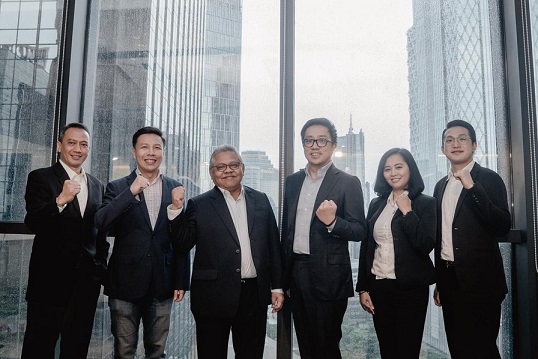
As a seasoned entrepreneur, do you have anything to say to those tech enthusiasts who tried to start something in this time of pandemic?
In order to create tech startup, it requires certain mindset and no perfect timing. Always think of the best way out of any situation. How can we make an unfortunate card works. In fact, when we decided to venture, challenge is something expected. If you have to wait for the perfect timing, how can you face the more challenges ahead.
I personally like my hands dirty, that's why I involved in the operation level. However, I understand that this is the time for young people to blossom. I'm currently focusing my energy to mentor and it's already time to pass the baton. We live in a very exciting time. About 400 years ago, it's almost impossible to create big impact in such short time. Technology creates equal opportunity and pulling the gap closer for people to create a big impact.
Sign up for our
newsletter
 Premium
Premium
